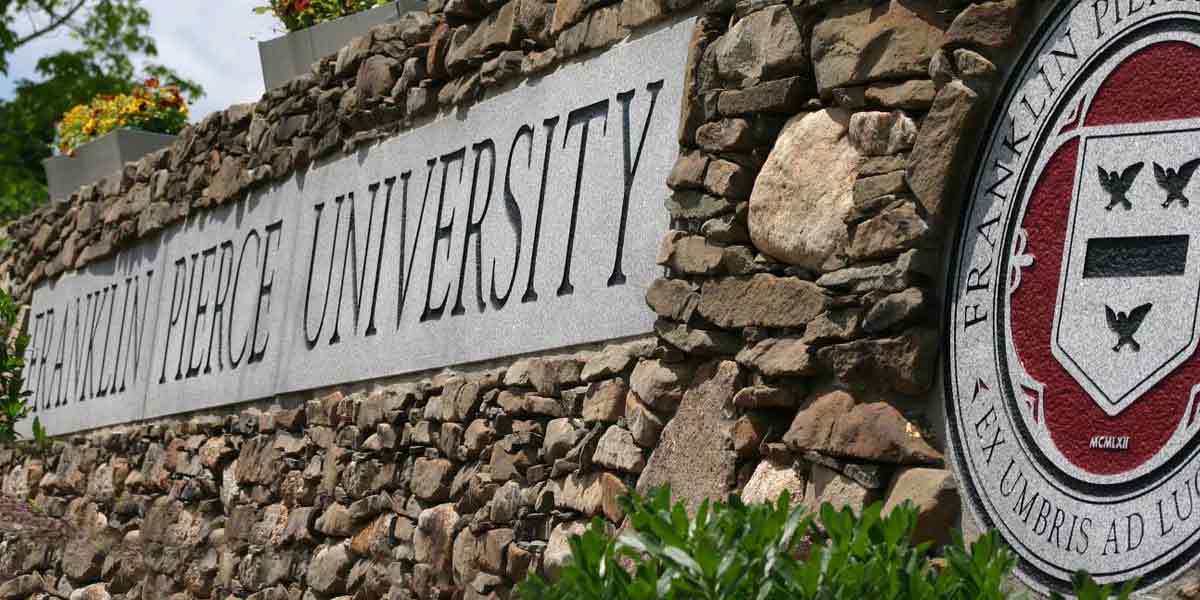Student Assists Professor in Timely Opioid Mapping Research
Jan 1, 2020

| Image |  |
|---|---|
| Caption |
|
According to the National Institute on Drug Abuse, “Every day, more than 90 Americans die after overdosing on opioids. The misuse of and addiction to opioids—including prescription pain relievers, heroin, and synthetic opioids such as fentanyl—is a serious national crisis that affects public health as well as social and economic welfare. This issue has become a public health crisis with devastating consequences.”
Franklin Pierce Junior Annalea (Annie) Wohlgemuth, a native of Temple, NH, is doing her part to help gain insight into this threat to public safety by assisting Associate Professor of Health Sciences Leila Jabbour with her research on the effect of opioids on the human brain.
| Image |  |
|---|---|
| Caption |
|
Dr. Jabbour says her current project is “focused on mapping expression of ΔFosB in post-mortem human brain specimens obtained following opioid overdoses. Our long-term goal is to better understand addiction resulting from the abuse of opioids, by analyzing differential gene expression in the specimens we have on hand. Our research is funded by NH-INBRE of the National Institutes of Health.”
Annie was drawn to Franklin Pierce because of its reputation in the Health Sciences department saying, “Franklin Pierce was a perfect fit. It is close to home, and the academic programs are strong and just what I was looking for.”
“The ability to get hands-on experience in the field of science is so very important.” Annie adds, “This opportunity allows me to relate this research to my ongoing coursework.”
| Image |  |
|---|---|
| Caption |
|
In her position as student research assistant, Annie prepares the brain tissue slides to be analyzed by Dr. Jabbour. The tissues are harvested from the Hippocampus, Nucleus Accumens and Amygdala, areas that control fear and which are affected by the presence of opioids. Annie describes the process; “First the tissue samples are dewaxed and affixed to a specimen slide. The tissue slide is baked in a hybridization oven and then blocked with horse serum. A primary, and secondary, antibody are applied, and rinsed off. Diaminobenzidine (DAB), an organic compound that is used in the staining of nucleic acids and proteins, most commonly for immunohistochemical procedures, is applied and counterstained.”
This entire process takes a couple of hours, which Annie says, “work nicely into my busy schedule. I am able to begin the process in the morning and then return to it in the afternoon to complete.”
“I feel that if I was not at a FPU, I would not be able to be as successful as I have been. The professors always answer their emails and are available during their office hours to assist in any way they can. Here, students learn from professionally trained academics in their field who challenge us to step outside our comfort zone.”
In addition to her work in Dr. Jabbour’s lab, a full course load, and a part –time job, Annie is an avid horseback rider. She owns two horses, and says, “They are my motivation and I know that realistically, I need a degree in order to support them.” She spends a tremendous amount of time caring for and riding her horses, which she boards locally. In the summer months, she competes professionally at shows and when school becomes overwhelming, riding and spending time at the barn eases her stress.
| Image |  |
|---|---|
| Caption |
|
Last year, Annie was inducted into Alpha Chi, an overall academic honor society for students who have demonstrated excellence in their coursework. Members must be in the top 10 percent of their class and are nominated by a faculty member.
Provost James DuMond says that, “Annalea Wolhgemuth is the type of multi-dimensional student that Franklin Pierce University attracts and mentors during their time here for optimal success.”

